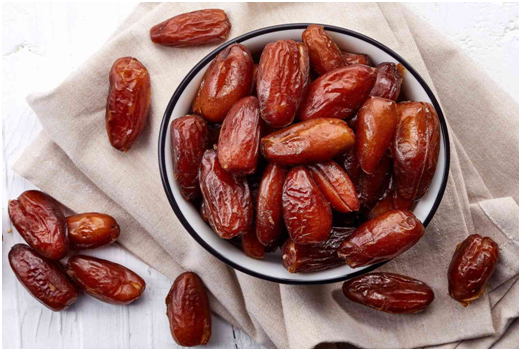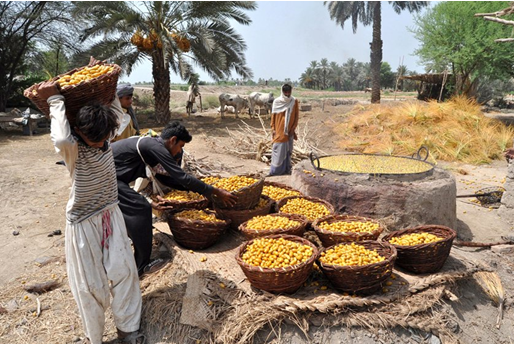i INP-WEALTHPK
Ahmed Khan Malik
A shift in the government strategy, combined with the private sector’s growing interest, has encouraged Sindh’s dates sector to focus on value addition and modern processing techniques to tap into new domestic and international markets, reports WealthPK.

Despite the high volume of production, Sindh’s dates sector has historically struggled with issues such as post-harvest losses, lack of cold storage facilities, and limited access to international markets due to substandard packaging and processing practices. Keeping in view these serious issues, the Sindh Agriculture Department, in collaboration with the Trade Development Authority of Pakistan (TDAP), is working on introducing improved harvesting, drying, grading, and packaging to enhance the quality and shelf life of the fruit.
Pakistan is the fifth-largest producer of dates in the world, with Sindh playing a key role in national output. Khairpur district alone accounts for nearly half of the province’s production, making it a central hub of the date industry.

“Sindh’s dates are rich in taste and nutrition, but they often lose value due to poor handling and outdated techniques. With investment in value addition, we can significantly increase the sector’s contribution to exports,” Khuda Bux Rajar, a Khairpur-based dates grower and processor, told WealthPK.
“Value addition includes activities such as washing, pitting, stuffing, drying, coating, and packaging of dates in consumer-ready formats. These enhancements not only fetch better prices in international markets but also open up avenues in food processing, such as date syrup, paste, and energy bars.
“To support this shift, dates processing units are being upgraded in key producing areas like Khairpur and Sukkur. Modern machinery is being introduced to ensure hygienic handling and uniform quality. Cold storage chains are also being established to reduce spoilage and extend the marketing period beyond the traditional harvesting season,” he said.
He said local entrepreneurs are playing an increasing role in the value chain. Several startups and SMEs in Sindh have started producing packaged date products under local brands, targeting supermarkets, health food stores, and online platforms. These businesses often focus on organic and premium varieties, which are in high demand among health-conscious consumers.
“Pakistan currently exports only a fraction of its total date production, with most of it in raw or semi-processed form. By investing in value-added products, the sector could double or even triple its export earnings,” Latif Mughal, a Sukkur-based agricultural expert, told WealthPK.
He welcomed the recent developments but suggested more support in terms of training, equipment, and access to finance, as farmers need modern tools and techniques to ensure that the fruit they grow meets international export standards,” he said, adding that the government should also help small growers connect with processors and exporters.
He noted that as the global demand for natural and healthy food products rises, the outlook for Sindh’s date sector looks increasingly promising. With the right mix of public and private investment, technological upgrades, and market development, the sector can maximize its production and exports, he said.
Credit: INP-WealthPk



